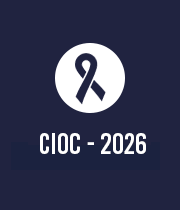Title : Identification of gene-specific signatures associated with AGR2 expression and TGF-? exposure in Lung Cancer cellular model
Abstract:
Epithelial to mesenchymal transition (EMT) is one of the key processes in tumour progression and metastasis development. TGF-β signaling plays an important role in this process, and through a cascade of signaling events, it enhances the transcription of EMT drivers. Recently, AGR2 protein emerged as a crucial component of the cellular machinery responsible for maintaining epithelial phenotype, hence interfering with the TGF-β pathway. We performed transcriptomic profiling of A549 lung cancer cell line with CRISPR-Cas9 mediated AGR2 knockout together with and without TGF-β treatment. The obtained results were subjected to PANTHER and DAVID analysis. Significant changes were identified in transcripts associated predominantly with focal adhesion and arachidonic acid metabolism. These changes were then validated on the selected panel of transcripts using RT-qPCR. Moreover, immunofluorescent staining showed induced formation of stress fibres containing vinculin foci in cells without AGR2 and in response to TGF-β treatment. Transcripts associated with arachidonic acid metabolism showed decreased levels after both AGR2 gene knockout and exposure to TGF-β and likewise were validated by RT?qPCR. Since prostaglandin E2 (PGE2) is a product of arachidonic metabolism, its lowered concentration in media after AGR2 gene knockdown and TGF-β treatment was confirmed by ELISA. In contrast, the addition of exogenous PGE2 significantly elevated AGR2 protein level in lung A549 and colorectal HT29 cancer cell lines. Together, our results imply that AGR2 downregulation and TGF-β have an essential role in focal adhesion formation; moreover, we have newly identified AGR2 as an important component of the arachidonic acid metabolic pathway. This work was supported by MH CZ - DRO (MMCI, 00209805) and European Structural and Investment Funds - Project "Mobility in MMCI" (No. CZ.02.2.69/0.0/0.0/18_053/0017836).



